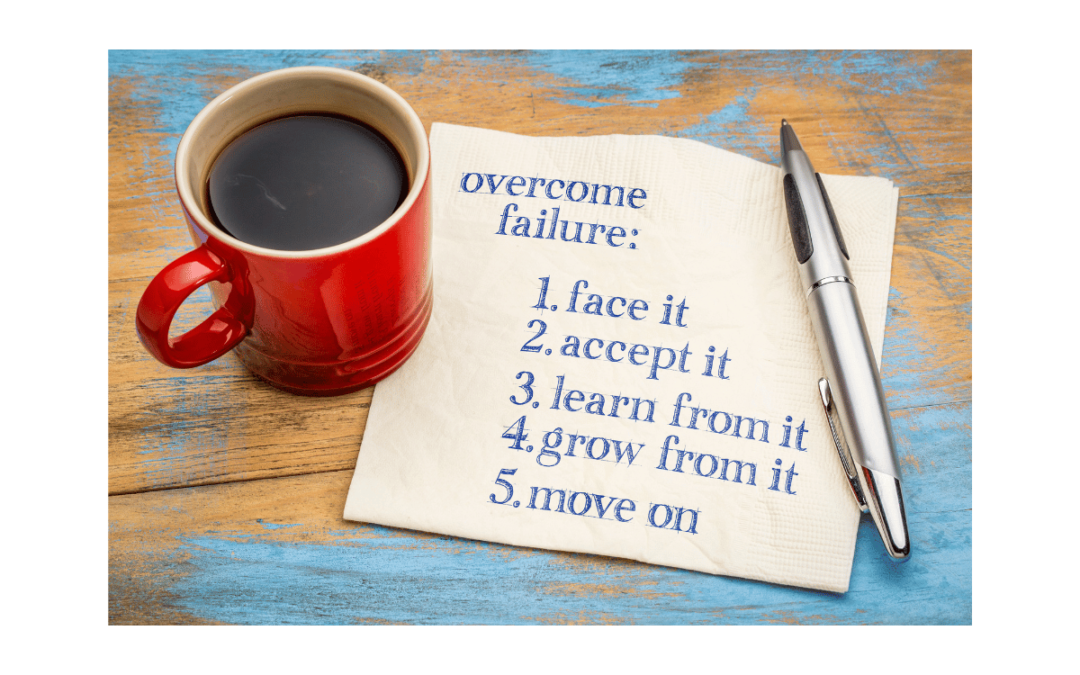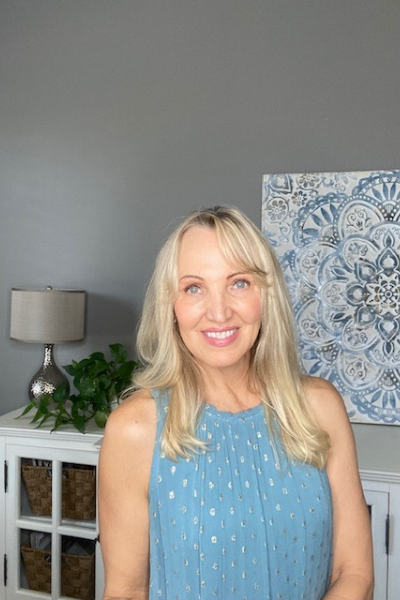Intro:
Failure is a word that often triggers anxiety, self-doubt, and even shame. But what if failure isn’t the end of the road, but a valuable teacher? In my latest episode of The Extraordinary Everyday, I explored the power of reframing failure and transforming it into a catalyst for growth. Here, I’m excited to dive deeper into how we can learn from setbacks and shift our mindset to embrace failure as a stepping stone on our path to success.
1. Why We Fear Failure
The fear of failure is universal, rooted in our desire to feel capable, accepted, and valued. This fear can be linked to past experiences, self-perception, or even societal pressures. Many of us worry that if we fail, we’ll lose respect, opportunity, or confidence. It’s natural to feel this way—after all, failure is uncomfortable and can make us feel vulnerable. But what happens when we let this fear take control?
When fear of failure is in the driver’s seat, it holds us back from pursuing opportunities, taking risks, or even setting ambitious goals. It keeps us in a loop of playing it safe, often at the expense of our growth. The good news? By understanding this fear, we can learn to manage it, rather than letting it manage us.
2. The Hidden Costs of Avoiding Failure
Choosing not to try because of fear might seem like the safest path, but it can lead to an unfulfilling, stagnant life. The real cost of avoiding failure is the potential for regret—the “what ifs” that linger when we look back on missed opportunities. Research has shown that people often regret not taking action more than they regret failures themselves.
Imagine a time you didn’t pursue something you wanted because you worried about failing. Maybe it was applying for a dream job, starting a new business, or even reaching out to someone you admire. That missed chance often stays with us longer than the disappointment of trying and failing. Taking action might bring discomfort but also growth, learning, and usually even unexpected new paths.
3. Reframing Failure as Feedback
One of the most powerful mindset shifts is seeing failure not as a final verdict, but as feedback—a guide that shows us what didn’t work and how we can adjust. This simple change in perspective can make a profound difference. When we see failure as a teacher, we give ourselves permission to learn, adapt, and grow.
Take the example of Sara Blakely, founder of Spanx. When she was building her company, she faced rejection after rejection, and each one could have been a reason to give up. But instead, she treated each setback as information, using it to tweak her approach. By not letting failure define her, she was able to create one of the most successful self-made brands. This type of resilience comes from treating failure as part of the journey, not the end.
4. Building Resilience and Moving Forward
Resilience is the skill that helps us pick ourselves up, dust off, and keep going. It’s what allows us to recover after a failure and turn it into a comeback. And while resilience might seem like something some people are born with, it’s a skill anyone can develop.
Here are a few practical ways to build resilience:
– Practice Self-Compassion: Speak to yourself as you would a close friend. Self-compassion can ease the sting of failure and helps us move forward faster.
– Set Small, Achievable Goals: Breaking down big goals into smaller steps makes setbacks feel manageable and keeps us motivated.
– Surround Yourself with Support: Having a supportive community—friends, mentors, or colleagues—can provide the encouragement and perspective you need to keep going.
– Reflect and Journal: After a setback, write down three things you learned. This simple act helps us see the value in failure and what it can teach us.
5. Real-Life Stories of Turning Setbacks into Comebacks
Some of the most inspiring success stories come from people who refuse to let failure stop them. Oprah Winfrey, for example, was fired from her first television job, told she wasn’t fit for TV. Instead of giving up, she used that experience to fuel her drive, ultimately becoming one of the most influential media personalities in the world.
When we see setbacks as part of our journey, they become less intimidating. Each challenge we overcome adds to our story, shaping us into stronger, more resilient individuals. What if we could view our own lives this way—as an evolving story, where each “failure” is simply a plot twist that leads us to a more powerful chapter?
6. Practical Tips to Overcome Fear of Failure
If fear of failure is holding you back, here are some steps to help you move forward with confidence:
– Visualize Success and Setbacks: Imagine both the success and possible obstacles. Seeing yourself overcome challenges helps build confidence.
– Shift Your Inner Dialogue: Replace self-defeating thoughts like, “What if I fail?” with “What if this leads to something incredible?”
– Start Small: Build momentum by facing small fears regularly. Each small step strengthens your resilience and courage.
– Celebrate Growth, Not Just Wins: Keep track of your growth and the progress you’re making, not just the results.
Conclusion: Embracing Setbacks as Part of the Journey
The fear of failure might always be with us, but it doesn’t have to define us. Every setback we face holds the seeds of a comeback, teaching us resilience, adaptability, and courage. Next time you’re faced with the fear of failure, remember that it’s part of the path to success. Embrace it, learn from it, and let it fuel your growth.
To dive deeper, listen to the full episode of The Extraordinary Everyday for more stories, tools, and insights on turning setbacks into comebacks.
Call to Action:
Have you experienced a setback that helped you grow? I’d love to hear your story! Share it and tag me on social media with #ExtraordinaryEveryday. Let’s inspire each other to embrace failure and keep moving forward.
Final Note:
- If you found this post helpful and want more tips on transforming your mindset, I’d love for you to join my email list. As a bonus, you’ll get access to my free Mindset Makeover download, designed to help you reframe negative beliefs and cultivate a positive, empowered mindset.
- Looking for a supportive community of women who are also working on personal growth? Check out my membership program, More You, where we dive into topics like mindset, confidence, and living with purpose. You deserve to show up as your full self, and this membership is here to help you do just that.





